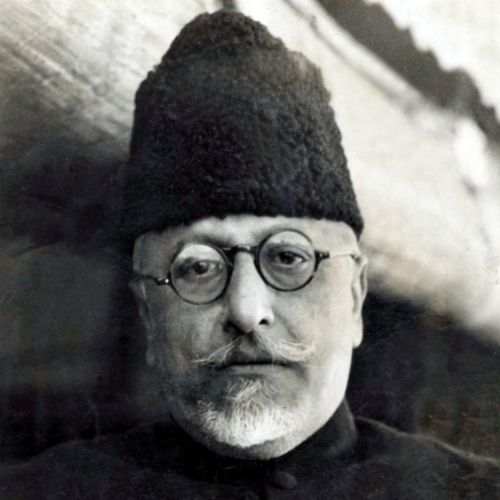Early Life
Maulana Abul Kalam Azad was born with the name of Abul Kalam Ghulam Muhiyuddin on November 11th 1888 in Mecca, Saudi Arabia. His father Maulana Khairuddin was a renowned Islamic scholar who brought Azad under his tutelage in his early years.
Azad however was inspired by the modernist writings of Sir Syed Ahmed Khan. In his teenage years, he transformed into a dynamic journalist and published Al-Hilal, a Calcutta based Urdu newspaper that was subsequently banned by the British authorities. An active participant in politics from his youth, he became the president of the Indian National Congress on two occasions – in 1923 and in 1940.
Role in India’s Independence Movement
Azad was a very active leader of the Indian independence movement. He was a brief but active participant in the Khilafat Movement (1920-24), in the midst of which he held the post of the president of the All-India Khilafat Committee.
After the Khilafat Movement Azad was inspired by Mahatma Gandhi, and actively participated in his civil disobedience initiatives namely the Dandi March (1930) and the Quit India Movement (1942). He was imprisoned at several instances during the period between 1920-1945. He was involved in the negotiations for independence with the British, wherein he vehemently opposed the partition.
Contribution to Constitution Making
Azad was elected to the Constituent Assembly from the United Provinces on a Congress ticket. He was a member of five different Committees and intervened in the debate around national language and education. Though he did not speak much in the Assembly, as a senior party leader he was a key part of the internal deliberations that went on behind the scenes and in the various Committees.
Later Contributions
After independence, Azad was appointed as the Education Minister, a post that he went on to hold for a decade until 1958 in the Cabinet of Pandit Jawaharlal Nehru. He was monumental in establishing the Indian Council for Cultural Relation (ICCR) to secure cultural exchange between India and the Eastern Countries.
Azad died on February 22, 1958. He was posthumously awarded the Bharat Ratna in the year 1992 in recognition of his efforts as a freedom fighter, journalist, scholar, and poet.
Key Writings:
Azad was proficient in several languages, including Arabic, Hindi, English, Urdu, Persian and Bengali. He wrote many books but is best known for the posthumously published An Autobiographical Narrative. Other important books include Gubar-e-Khatir, Azad on Pakistan, and Tazkirah.
- Azad forcefully argued that English should continue as the national language as it served as the linguistic bridge between the north and south, and was a more inclusive choice than Hindi, at least for the time being.
- Maulana Abul Kalam Azad by Abdul Qavi Desnavi (Sahitya Akademi, 1991)
- The Educational Ideas of Maulana Abul Kalam Azad by G. Rasool Abduhu (Sterling Publishers, 1973)
- Abul Kalam Azad: An Intellectual and Religious Biography by Ian Henderson Douglas (Oxford University Pres, 1993)
- Maulana Azad, Islam and the National Movement by Syeda Saiyidain Hameed (Oxford University Press, 2014)

